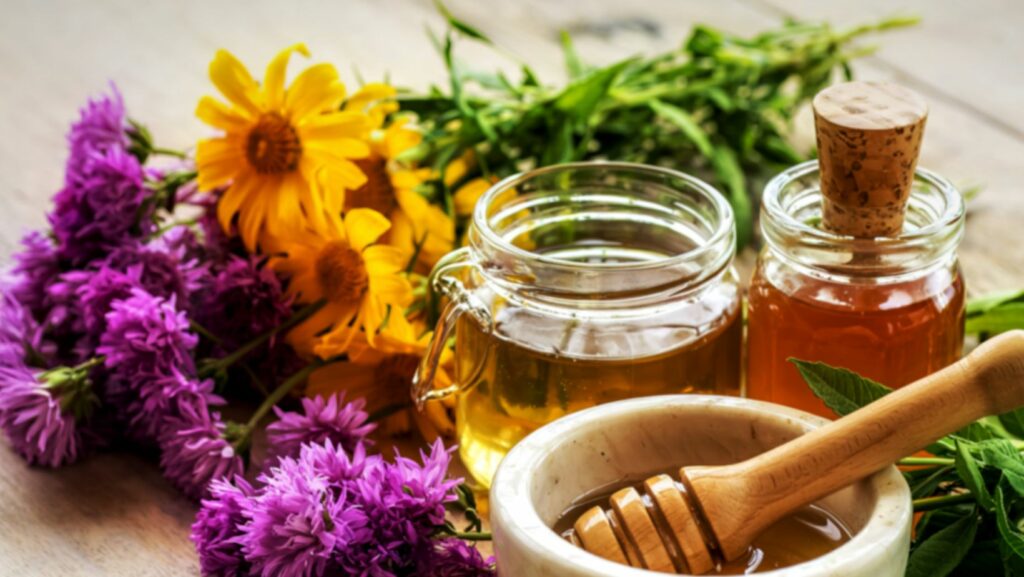Stress and anxiety have become unwelcome companions in our daily lives. While modern medicine offers various solutions, many people seek natural alternatives that support their overall well-being without harsh side effects. These ten natural remedies can help you manage stress and anxiety while promoting a calmer, more balanced lifestyle.
1. Deep Breathing Techniques
Your breath is one of the most powerful tools for managing stress and anxiety. When you feel overwhelmed, your breathing becomes shallow and rapid. Deep breathing exercises can activate your body’s relaxation response within minutes.
Try the 4-7-8 technique: inhale for 4 counts, hold your breath for 7 counts, then exhale slowly for 8 counts. Practice this for 5-10 minutes daily. The focused breathing not only reduces stress hormones but also increases oxygen flow to your brain, promoting clearer thinking.
Progressive muscle relaxation combined with deep breathing creates an even more effective stress-reduction practice. Start from your toes and work upward, tensing each muscle group for 5 seconds, then releasing while taking deep breaths.
2. Essential Oil Aromatherapy
Essential oils have been used for centuries to promote emotional well-being and reduce stress. EO Care practices incorporate various essential oils that can significantly impact your mood and anxiety levels through their therapeutic properties.
Lavender oil stands as the most researched essential oil for anxiety relief. Studies show that inhaling lavender can reduce cortisol levels and promote relaxation. Bergamot oil offers uplifting properties that can combat stress-related depression, while chamomile oil provides gentle calming effects.
Create your own stress-relief blend by mixing 3 drops of lavender, 2 drops of bergamot, and 1 drop of ylang-ylang in a diffuser. For on-the-go relief, apply diluted essential oils to pulse points or carry a personal inhaler with your favorite calming blend.
3. Herbal Teas and Natural Supplements
Nature provides numerous plants with proven anxiety-reducing properties. Herbal teas offer a gentle, accessible way to incorporate these benefits into your daily routine. Chamomile tea contains apigenin, a compound that binds to brain receptors and promotes sleepiness while reducing anxiety. Passionflower tea has been shown in studies to be as effective as some anti-anxiety medications for mild to moderate anxiety. Green tea contains L-theanine, an amino acid that promotes relaxation without drowsiness. This makes it perfect for daytime stress management. Lemon balm tea can help reduce stress-related symptoms and improve mood.
For individuals seeking additional guided relief options beyond herbal remedies, solutions like EO Care provide structured support designed to complement natural approaches to stress and anxiety management.
Always consult with a healthcare provider before starting new supplements, especially if you take medications or have existing health conditions.
4. Mindfulness Meditation
Mindfulness meditation teaches you to observe your thoughts and feelings without judgment, reducing their power over your emotional state. Regular practice can literally rewire your brain, making you more resilient to stress.
Start with just 5 minutes daily. Sit comfortably, close your eyes, and focus on your breath. When your mind wanders (and it will), gently bring your attention back to breathing. This isn’t about stopping thoughts but learning to observe them without getting caught up in their drama.
Guided meditation apps can help beginners establish a consistent practice. Body scan meditations, where you systematically focus on different parts of your body, can be particularly effective for releasing physical tension caused by stress.
5. Regular Physical Exercise
Exercise is one of the most effective natural stress relievers available. Physical activity increases endorphin production, your body’s natural mood elevators, while reducing stress hormones like cortisol and adrenaline.
You don’t need intense workouts to see benefits. A 30-minute walk in nature can significantly reduce anxiety levels. Yoga combines physical movement with breathing techniques and mindfulness, making it especially effective for stress management.
Dancing, swimming, cycling, or any activity you enjoy can become your stress-busting routine. The key is consistency rather than intensity. Even 10 minutes of movement can shift your mental state and provide immediate stress relief.
6. Nutrition for Stress Management
What you eat directly impacts your ability to handle stress. Certain foods can increase anxiety, while others provide nutrients that support your nervous system and emotional balance.
Complex carbohydrates like oatmeal, quinoa, and sweet potatoes help regulate serotonin levels, promoting feelings of calm. Omega-3 fatty acids found in salmon, walnuts, and flaxseeds reduce inflammation and support brain health.
Magnesium-rich foods like dark chocolate, avocados, and leafy greens help regulate cortisol levels. Probiotic-rich foods such as yogurt and kefir support gut health, which is closely linked to mental well-being through the gut-brain connection.
Limit caffeine and alcohol, as both can increase anxiety symptoms and disrupt sleep patterns essential for stress recovery.
7. Quality Sleep Hygiene
Poor sleep amplifies stress and anxiety, creating a vicious cycle. Establishing good sleep hygiene can break this pattern and provide your body with the rest it needs to manage stress effectively.
Create a consistent bedtime routine that signals to your body it’s time to wind down. This might include dimming lights, taking a warm bath, or practicing gentle stretches. Keep your bedroom cool, dark, and quiet to promote deep, restorative sleep.

Avoid screens for at least an hour before bed, as blue light can interfere with melatonin production. Instead, try reading, listening to calming music, or practicing gentle breathing exercises. EO Care routines that incorporate relaxing essential oils before bedtime can enhance sleep quality naturally.
8. Social Connection and Support
Humans are inherently social beings, and isolation can significantly increase stress and anxiety levels. Building and maintaining strong social connections provides emotional support and helps put problems into perspective.
Reach out to friends, family members, or support groups when you’re feeling overwhelmed. Sometimes simply talking about your concerns can reduce their emotional impact. Consider joining clubs, volunteering, or participating in community activities that align with your interests.
If face-to-face interaction feels challenging, start small with phone calls or video chats. Online support groups can also provide valuable connection and understanding from others facing similar challenges.
9. Time Management and Boundary Setting
Much of our stress comes from feeling overwhelmed by responsibilities and commitments. Learning to manage your time effectively and set healthy boundaries can dramatically reduce daily stress levels.
Practice saying no to commitments that don’t align with your priorities or values. Use time-blocking techniques to organize your day and avoid the stress of constant multitasking. Break large projects into smaller, manageable tasks to prevent feeling overwhelmed.
Set boundaries around work hours, social media use, and availability to others. Remember that taking care of your mental health isn’t selfish – it’s necessary for being able to show up fully in all areas of your life.
10. Nature Therapy and Outdoor Activities
Spending time in nature has profound effects on stress and anxiety levels. Research shows that even short periods outdoors can reduce cortisol levels, lower blood pressure, and improve mood.
Forest bathing, or simply spending mindful time among trees, can be particularly beneficial. The practice doesn’t require hiking or strenuous activity – simply sitting quietly in a natural setting and engaging your senses can provide significant stress relief.
Gardening offers a unique combination of nature connection, physical activity, and mindful focus that can be incredibly therapeutic. If outdoor space is limited, even tending to houseplants can provide some of these benefits.
Creating Your Personal Stress Management Plan
These natural remedies work best when combined and tailored to your lifestyle and preferences. Start by choosing 2-3 approaches that resonate with you most strongly. Consistency matters more than perfection, so focus on building sustainable habits rather than trying to implement everything at once.
EO Care practices, regular exercise, and mindfulness meditation form a powerful foundation for natural stress management. As these become routine, gradually incorporate additional strategies like improved sleep hygiene and nutrition changes.
Remember that managing stress and anxiety is an ongoing process, not a one-time fix. Be patient with yourself as you develop these new habits, and don’t hesitate to seek professional support when needed. These natural remedies can complement professional treatment and provide you with valuable tools for long-term emotional well-being.
By taking a holistic approach to stress management through these natural remedies, you’re investing in not just immediate relief but also long-term resilience and overall health. Your future self will thank you for the time and effort you invest in these practices today.
